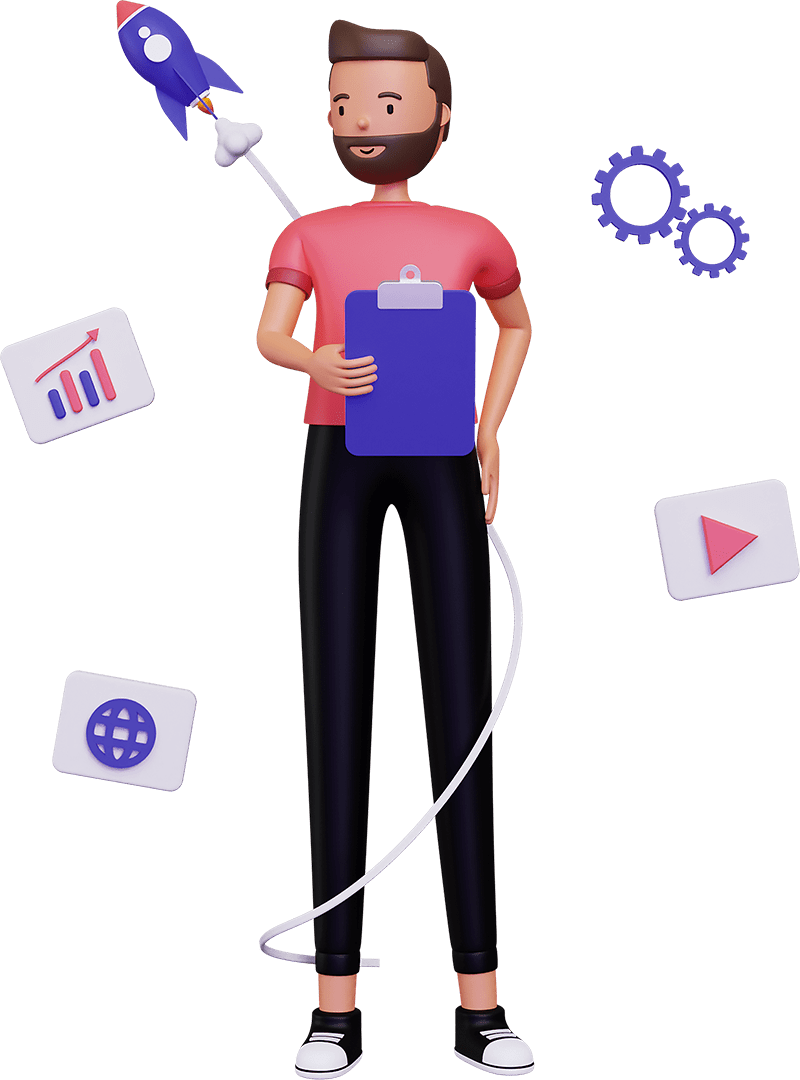Introduction
Custom CRM Development is essential for businesses looking to manage customer relationships effectively and drive growth. A Customer Relationship Management (CRM) system helps businesses organize, track, and manage customer interactions and data throughout the customer lifecycle. This article explores the benefits of custom CRM development, the development process, key features, and best practices for creating a robust CRM system.
The Benefits of Custom CRM Development
- Enhanced Customer Insights
- Improved Customer Service
- Increased Sales Efficiency
- Streamlined Communication
- Scalability
Enhanced Customer Insights
A custom CRM system provides valuable insights into customer behavior, preferences, and interactions. This information helps businesses understand their customers better and tailor their marketing and sales strategies accordingly.
Improved Customer Service
A CRM system centralizes customer data, making it easily accessible to customer service representatives. This enables them to provide timely and personalized support, improving customer satisfaction and loyalty.
Increased Sales Efficiency
A CRM system automates and streamlines the sales process, from lead generation to closing deals. This increases sales efficiency and helps sales teams focus on high-value activities.
Streamlined Communication
A CRM system facilitates communication and collaboration among team members by providing a centralized platform for sharing information and updates. This ensures that everyone is on the same page and can work together effectively.
Scalability
A custom CRM system can grow with your business, allowing for the addition of new features and functionalities as needed. This scalability ensures that the CRM system remains effective as the business evolves.
The CRM Development Process
Developing a robust CRM system involves several key stages:
- Requirement Analysis
- Design
- Development
- Testing
- Deployment
- Maintenance and Updates
Requirement Analysis
The first step is to analyze the business’s needs and define the requirements of the CRM system. This includes identifying the target users, core features, and technical specifications needed to meet the project’s objectives.
Design
The design phase involves creating the user interface (UI) and user experience (UX) design for the CRM system. This includes wireframes, mockups, and prototypes to visualize the system’s layout, navigation, and interactions.
Development
The development phase involves writing the code to build the CRM system according to the design specifications. This includes developing the front-end and back-end components, integrating databases, and implementing security measures.
Testing
Thorough testing is essential to ensure that the CRM system functions correctly and meets performance and security standards. This includes functional testing, usability testing, performance testing, and security testing.
Deployment
Once the CRM system has been tested and approved, it is deployed to the production environment. This involves configuring the server, setting up the database, and ensuring that the system is accessible to users.
Maintenance and Updates
Ongoing maintenance and updates are necessary to ensure that the CRM system continues to perform well and remains secure. This includes regular updates, bug fixes, performance enhancements, and adding new features as needed.
Key Features of a Robust CRM System
- Contact Management
- Sales Automation
- Customer Support
- Analytics and Reporting
- Integration Capabilities
Contact Management
A robust CRM system provides comprehensive contact management features, allowing businesses to organize and track customer information, interactions, and history. This helps businesses maintain detailed records and improve customer relationships.
Sales Automation
Sales automation features streamline the sales process by automating tasks such as lead generation, follow-ups, and pipeline management. This increases sales efficiency and helps sales teams focus on closing deals.
Customer Support
A CRM system provides tools for managing customer support tickets, tracking issues, and providing timely and personalized support. This improves customer satisfaction and helps businesses resolve issues quickly.
Analytics and Reporting
Analytics and reporting tools provide valuable insights into customer behavior, sales performance, and marketing effectiveness. This data helps businesses make informed decisions and optimize their strategies.
Integration Capabilities
A robust CRM system integrates seamlessly with other business systems, such as email, marketing automation, and ERP systems. This ensures that all data is centralized and accessible, improving efficiency and collaboration.
Best Practices for CRM Development
- Focus on User Experience
- Ensure Data Security
- Optimize Performance
- Provide Comprehensive Training
- Plan for Scalability
Focus on User Experience
Prioritize user experience by designing an intuitive and user-friendly interface. This ensures that users can navigate the system easily and perform tasks efficiently.
Ensure Data Security
Implement robust security measures to protect customer data and ensure compliance with data protection regulations. This includes using encryption, access controls, and regular security audits.
Optimize Performance
Optimize the CRM system for performance by minimizing load times and ensuring efficient data handling. This enhances the user experience and ensures that the system remains responsive.
Provide Comprehensive Training
Provide comprehensive training and support to ensure that users can effectively use the CRM system. This includes user manuals, tutorials, and ongoing support to address any issues.
Plan for Scalability
Design the CRM system with scalability in mind, allowing for the addition of new features and functionalities as the business grows. This ensures that the system remains effective over time.
Conclusion
Custom CRM Development is essential for businesses looking to manage customer relationships effectively and drive growth. By understanding the benefits, development process, key features, and best practices, businesses can create a robust CRM system that enhances customer insights, improves customer service, and increases sales efficiency. At We-Dev, we specialize in developing tailored CRM solutions that meet the unique needs of our clients. Contact us today to discuss your CRM development needs and learn how we can help you build a powerful and reliable customer relationship management system.
